Search Results
Showing results 1 to 14 of 14

Share Your Planet
Source Institutions
In this cooperative game, learners devise strategies about sharing a small space with each other.
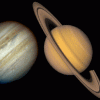
Planet Surfing
Source Institutions
In this astronomy activity (page 6 of the PDF), learners will compare and contrast two planets in the solar system using data obtained from the internet.

Vanishing Craters
Source Institutions
In this activity (on pages 12-15), learners make a crater model and test the effects of weather (rain) on its surface.
Light on Other Planets
Source Institutions
In this math-based activity, learners model the intensity of light at various distances from a light source, and understand how astronomers measure the amount of sunlight that hits our planet and othe

Exploring the Universe: Space Guess Quest
Source Institutions
Space Guess Quest is a fun game that encourages participants to identify the many types of objects in space, from human-made spacecraft to nebulas, galaxies, stars, and worlds.

How Do We Find Planets Around Other Stars?
Source Institutions
This fun and simple hands-on astronomy activity describes techniques scientists use to find planets orbiting other stars.
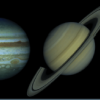
Our Solar System to Scale
Source Institutions
In this activity, learners plan and create a 24-foot long, two-dimensional model of our solar system, and compare and contrast the differences between planets and the sun.
Crater Maker
In this activity (on pages 6-11), learners work as a team to investigate how impact craters on Earth, the Moon or other planets take shape and what patterns they make.
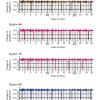
Transit Tracks
Source Institutions
In this space science activity, learners explore transits and the conditions when a transit may be seen.
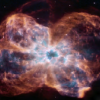
Telescope Treasure Hunt
Source Institutions
This hands-on astronomy activity lets learners hunt for different objects in the night sky that contribute to stellar and planetary formation, using a Treasure List.
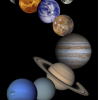
Habitable Worlds
Source Institutions
In this group activity, learners consider environmental conditions—temperature, presence of water, atmosphere, sunlight, and chemical composition—on planets and moons in our solar system to determine
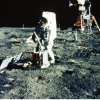
Planet Exploration Mission
Source Institutions
In this activity, learners design a scientific exploration mission to a planet or moon of their choice.
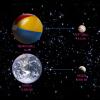
Sizing Up the Universe
Source Institutions
In this online interactive challenge, learners choose items to represent the Earth or solar system, then determine other items to represent the Moon, or Milky Way based on their relative size.
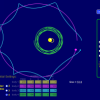
My Solar System
Source Institutions
In this online activity, learners build their own system of heavenly bodies and watch the gravitational ballet.
